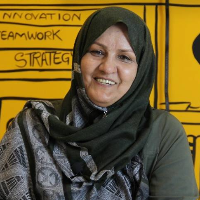Ethics Education from Iran's New Religious Thinkers’ Perspectives: Comparison of Mustafa Malikian and Abolghasem Fana’i Thoughts
Author(s):
Article Type:
Research/Original Article (دارای رتبه معتبر)
Abstract:
The purpose of research was to examine ethics education from the two religious thinkers’ perspective of Iran namely Mustafa Malikian and Abolghasem Fana’i. The method of data collection was documentary through the review of primary and secondary sources indexed in various scientific databases. The method of analysis was conceptual content analysis. Based on the findings, the most important similarities of ethics education in the Malikian and Fana’i’s thoughts are as follow: Trans-religious nature of ethics education; absence of coercion in ethics education, and emphasis on use of integrated approach in ethics education. The differences between these two thinkers are: while Malikian's emphasis on individual ethics education, lack of attention to modern human characteristics in Iran's education system, and universality of ethics life compared to moral practice; Fana’i highlighted social ethics education, replacing ethics with jurisprudence in Iran's education system, clash of ethics education with religious education in this system, and existence of a gap between knowledge and ethics practice. According to the findings, it is suggested to the curriculum planners of Iran to take a more comprehensive look at the views of traditional thinkers and the modern religious thinkers’ perspectives in ethics education of learners.
Keywords:
Language:
English
Published:
Iranian Journal of Comparative Education, Volume:7 Issue: 1, Winter 2024
Pages:
2856 to 2875
https://magiran.com/p2700734
مقالات دیگری از این نویسنده (گان)
-
Investigating the Psychometric Properties of the Ethical Values Assessment questionnaire in university students: three ethics approach to moral psychology
Seyedeh Khadijeh Amirian, *
Educational Measurement, -
Effectiveness Study of the Creativity Training Workshop on the Knowledge, Attitude, and skill of Teachers in Deprived Areas: A Longitudinal Phenomenological Study
Afzal Sadat Hosseini *, Fateme Jafarpoor
Journal of Applied Psycology Research,


